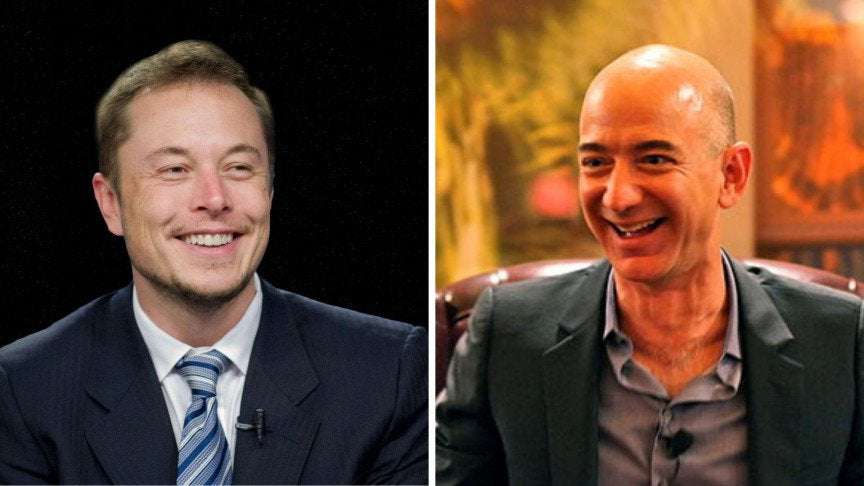You might have paid more income tax than billionaires Jeff Bezos and Elon Musk. Even as their wealth grew, they kept paying little to no tax, according to a one-of-a-kind report by ProPublica.
The extensive report came to light thanks to ProPublica's investigative sleuths who got their hands on "a vast cache of IRS information" that goes over more than 15 years of tax returns of some of the U.S.', and the world's, richest people. No details of who provided the information was shared.
Billionaires from Amazon's Bezos to Tesla and SpaceX's Musk, among others, have seemingly managed to avoid paying much income tax legally. The difference between how much the billionaires are worth and what they paid in income tax are staggering.
For instance, ProPublica reported that in 2007 and 2011, Bezos paid no income tax, while Musk achieved the same feat in 2018. The two men have been ping-ponging back and forth for the title for the world's richest person, yet they've paid little to no tax over the past years.
More widely, between 2014 to 2018 the 25 richest Americans combined paid a total of $13.6 billion in federal income tax, the report stated, all while their collective wealth rose by approximately $401 billion.
It's hard to wrap your head around these figures, and understand how the world's wealthiest people get away with such low payments — for them.
How does the world's richest avoid paying higher income tax?
It all comes down to income. Most of the billionaires on the list "offset every penny [they] earned with losses from side investments and various deductions, like interest expenses on debts and the vague catchall category of ‘other expenses," read the report.
The Bezos' and the Musk's of this world don't need high salary wages, because they have so much money growing in their stocks, property, and more. As the report points out, take Facebook's Mark Zuckerberg, and Apple's late Steve Jobs — they chose to only get paid a $1 salary. Other CEOs and founders have followed suit. Some may point out to good intentions, while others might believe it's all to do with income tax avoidance.
Their wealth comes from the "skyrocketing value of their assets," per ProPublica, which are not considered by U.S. laws as taxable income unless the billionaires decide to sell.
It's been broadly understood for a while now that the rich aren't taxed as much as the not-so-rich, and that's because the median person lives paycheck to paycheck, and gets taxed on that income.
ProPublica's next steps will be to dig up exactly how the U.S.' wealthiest people managed — and continue to manage — to avoid paying federal income taxes legally.
Leaking such high-value data and private records hasn't gone unnoticed, and according to the Financial Times, the U.S. tax authorities are investigating who shared these private tax records with ProPublica, and how. Stay tuned.

The-pain-train-13 on June 9th, 2021 at 14:58 UTC »
Former lobbyist here (for non profits) I had friends whose only jobs were getting lines of the tax code changed to help billionaires. One in particular handled a very well know Tech exec who liked mega yachts and specialized aircraft. When people respond that “ they did nothing wrong they just followed the rules” they miss the point that they literally wrote the rules. In one case the code was written specifically to address a single purchase of theirs. It would not apply to anyone else. It seemed vague on first reading— that’s what a good lobbyist does— but literally was just for this single client.
FRBls on June 9th, 2021 at 13:08 UTC »
Topics must be about technology……
Cat_King_Joe_Normal on June 9th, 2021 at 11:51 UTC »
Because there is nothing to tax. They pay themselves next to nothing “on paper” and DO actually pay taxes on the salary they record. Next they simply take out loans against the value of their assets and pay interest to the bank loan. But they don’t actually hold cash.
So ask yourself what exactly are you going to tax?